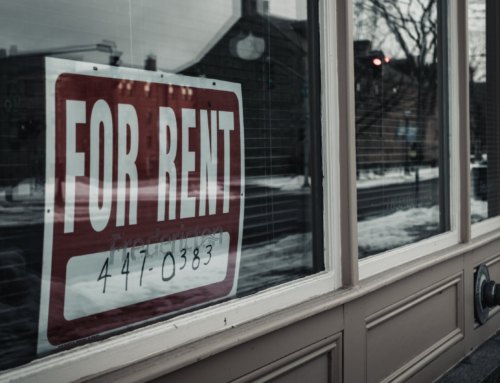Published in US News & World Report, November 24, 2015
Help! I Was Sold a Bad Home. Now What?
If you buy a dud, you have rights. But not many.
Sometimes all the safeguards the real estate industry has put in place to help prevent buyer’s remorse after purchasing a house still don’t work.
The process takes time for a reason, and you aren’t getting a home inspection for the fun of it. It can happen. You can buy a plot of disappointment.
It’s never easy to bounce back from purchasing a house you quickly wish you hadn’t bought. You’ve moved in. You may have nowhere else to go. You’ve not only spent a lot of money, but a lot of time and energy. And the law is not necessarily on your side. Still, if you’re determined to get your money back, or at least some satisfaction, you’ll want to remember the following.
Know your rights. Here’s the good news. You are (probably) within your rights to sue someone who knowingly sells you a house with serious problems.
“Most U.S. states have a home seller disclosure law that requires a seller to disclose defects in the home that they are aware of. Such defects include foundation and structural issues, roofing, HVAC, fireplace, basement, plumbing, electrical, siding, floors, walls, windows and even appliances,” says Lance Luke, owner of Construction Management Inspection, LLC, in Honolulu, Hawaii.
Maybe most importantly, he adds: “The seller disclosure case law actually mandates that the seller disclose not only what they know, but what they should have known.”
It’s another story in the Lone Star State, says Matthew Young, owner of Autus Properties, a custom home builder in Plano, Texas.
“Generally, Texas is buyer beware when buying a home,” Young says. “The real estate promulgated form gives buyers time periods to make inspections of anything and everything they feel is relevant.”
Moreover, Young says, “for Texas, generally once an issue is fixed, a homeowner no longer has to disclose it.”
If you buy a house from someone who had a roof leak, and it was fixed, you’re under no obligation to know that because the seller doesn’t have to disclose it, Young says.
The burden of proof is on you. And here is the bad news (or worse news, since the good news wasn’t great): It’s hard to prove anyone knowingly sold you a dump.
That’s why real estate experts urge homeowners tohire a qualified and competent home inspector or perhaps purchase a home warranty that covers unknown defects. If you’re going to get a court to side with you, generally, you have to prove that the seller actually knew about the defects when they sold you the house, says Peter Boscas, owner of Red Cedar Real Estate in Columbia, Maryland.
And that isn’t easy.
Every once in a while, you may get lucky. “I had a client come across proof of deception once completely by accident,” Boscas says. “They had called a local plumber randomly out of the phone book to come repair a sewage issue in the basement that had come up a few weeks after settlement. When the plumber arrived, he made a comment to the new homeowners that he had been to the house already four or five times in the last couple of months for the same exact issue.”
If the new homeowners hadn’t happened to call the same plumber, who noted he’d given the old homeowners estimates of what it would have cost to repair the water issues, though they took no action, there would have been no proof that they had been knowingly sold a problematic home.
As it turns out, Boscas says the new homeowners confronted the sellers about the plumbing, “and to avoid litigation, the sellers agreed to cover half the cost of the repair.”
Which should be encouraging. If you really have a case, justthreatening to sue may work.
Don’t rush to your lawyer. Yes, you’re angry. Yes, something needs to be done. Yes, you may have the right to sue. But Ron Rovtar, a real estate broker with Cherry Creek Properties in Boulder, Colorado, says that he would recommend you first go to your agent.
For one, he says, “court cases are expensive.” Moreover, he adds: “It has been my experience that often a more direct approach is the best first option for solving a post-closing problem.”
He advises you at least talk things out and see if you can come up with a decent resolution with the seller before you call your attorney. If you can’t do that, or you’re convinced that you have to go to court, he strongly suggests, “Do not drop this bomb until you have indeed talked to an attorney.”
There are two reasons for that, Rovtar says, explaining: “You may find that you really do not have a case, or that the payoff will probably be too small. The law and the way courts interpret it can be confusing to us non-lawyers.”
Besides, Rovtar points out that you’ll likely be asked for the name and phone number of your attorney; all the more reason to have actually spoken to one. “In this business, legal threats are made all the time. No one will take you seriously if you have not at the least talked to a lawyer,” he says.
Prevention is, well, you know. Nobody wants to hear this if they’re in a jam. But if you were worried about this sort of thing, and you, say, brought in a real estate attorney, he or she probably gave you an escape clause, like adding a rider to a standard purchase and sale agreement, says Robert Pellegrini, president of PK Boston, a real estate law firm.
“Without affirmations in writing, the buyers will have a difficult time defeating the well-established principal of caveat emptor , buyer beware,” Pellegrini says.
But all is not lost if you don’t have the rider, Pellegrini says.
“You should look for any evidence that the sellers may have known about the condition,” he says, adding that if you can prove the seller took steps to hide the defects, you may be able to seek damages.
Of course, attorneys don’t come cheap, and if you have the money to go to court to try and force the seller to make repairs or amends in some other way, you probably have the income to fix your house. When you don’t have the money for either the attorney or repairs, that’s when you may have to learn to love your house, even the parts of it you hate.




